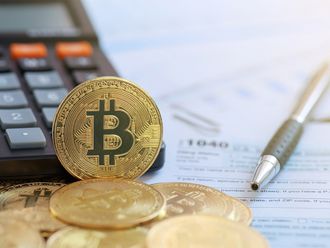The amount of trade between Russia and Arab countries is uniquely limited at the moment, but the future looks promising, especially with regard to cooperation on issues dealing with the energy sector.
Attending part of deliberations of the 9th Russian-Arab Business Council meetings last week in Moscow, I learnt that the two-way trade amounts to $10 billion (Dh36.7 billion) at best. Other speakers put the annual trade value merely at $8 billion.
This figure is notably low compared to the value of trade between Arab nations and Japan and China, set at $170 billion and $140 billion, respectively.
Understandably, oil trade makes the difference, as Japan and China rely on imported oil from several Arab countries including those of the Gulf Cooperation Council (GCC). The same is not true with Russia a key energy-producing nation.
To be sure, Russia is the second largest producer of oil in the world after Saudi Arabia.
Russia also holds the largest amount of proven gas reserves in the world, ahead of Iran and Qatar. As such, the economies of Russia and numerous Arab countries can best be characterised as competing rather than complementing ones.
Hence, the focus is collaboration, with Russia taking the lead in forming a group of gas-producing countries. Set up in 2008, the Opec-style gas cartel is the brainchild of Russia.
Another form of cooperation relates to Russia assuming Opec prices as a guideline. This reality cannot be taken lightly as Russia has the capability to influence price directions. Arab countries make up the majority of Opec members, with Saudi Arabia being the largest oil exporter in the world. In a sense, Russia is helping oil-producing Arab countries achieve their economic goals.
Painful realities
On the other hand, some painful realities undermine business dealings of the GCC and other Arab countries with Russia, most notably the language barrier. Many investors prefer to use English in trade discussions and not the Russian language.
Still another hurdle relates to business practices, as some insist on commissions for expected services.
This painful reality partly explains the absence of several Arab countries from Arabian Expo 2010, held on the sidelines of the Russian-Arab Business Council. The expo was only the second of its kind but had a low exhibitor turnout, with Bahrain being the only GCC nation represented at the event.
Sadly, Russian business practices score badly on the Corruption Perceptions Index (CPI), in turn published by Transparency International.
The 2009 CPI ranks Russia No 146 in the world amongst 180 nations, a result shared with Zimbabwe. The CPI is compiled on the basis of several surveys and polls, with reviewed economies earning points based on perceptions expressed by business and academic professionals concerning the ways of doing business in various countries.
The respondents, which include local and expatriate residents, provide views about possible corrupt practices involving public officials with regard to matters related to business.
Russia's relatively low-per capita income is not conducive for bilateral trade. Per capita income is $15,000 per annum a paltry figure compared to other leading economies. Per capita income in the United States, Germany and Japan exceeds $40,000.
Nevertheless, GCC firms cannot overlook Russia whose gross domestic product stands at $2.1 trillion on purchasing power parity basis.
This makes it the 8th largest economy in the world. Russia has a population of nearly 140 million, and this partly explains the relatively low level of GDP per capita.
Nevertheless, Russia's advantages are numerous. It is the largest country in the world in terms of size and also has a wide range of natural resources including natural gas and oil deposits and other strategic minerals.
The writer is a Member of Parliament in Bahrain.












